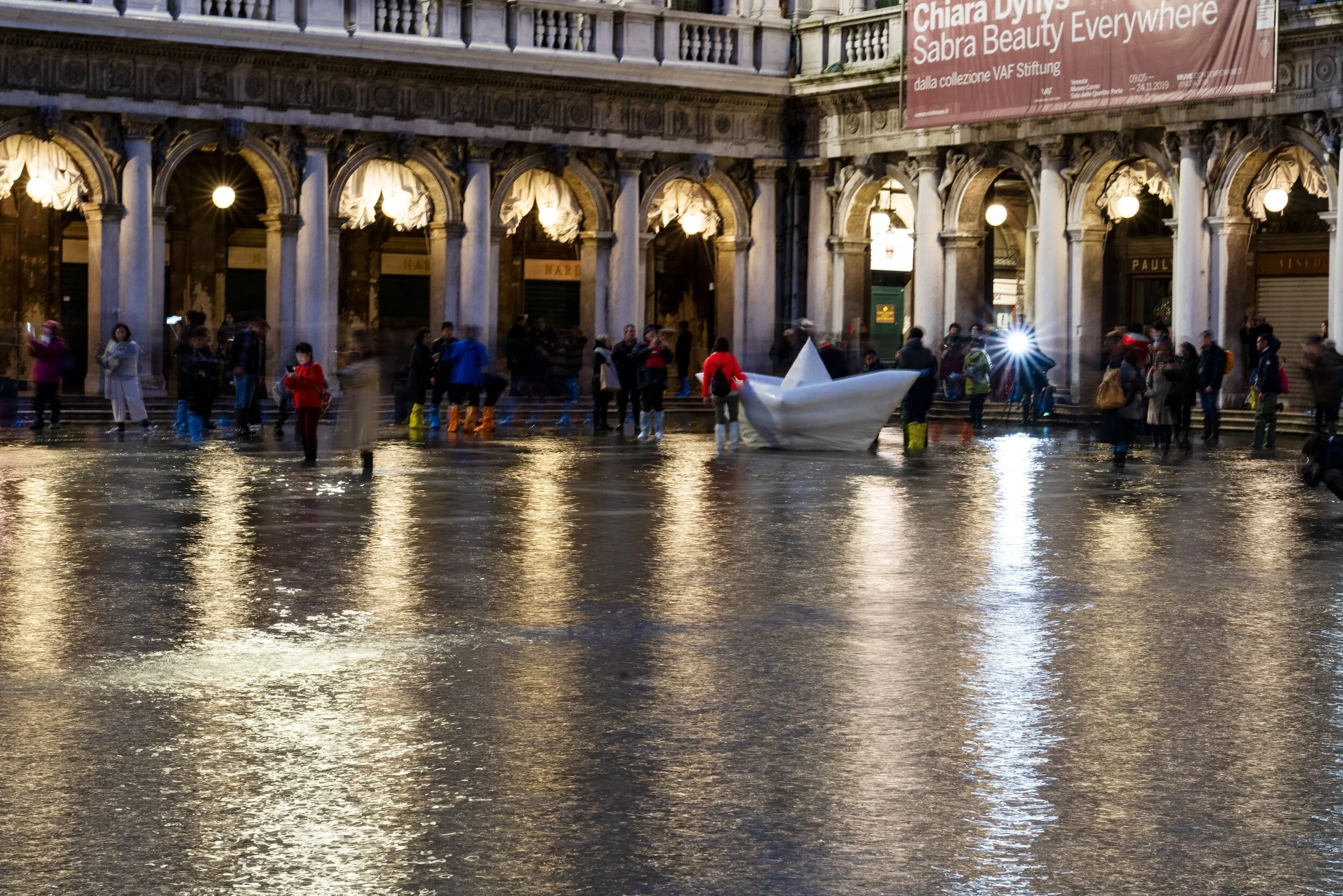The Venice floods as a climate change visual story?
It didn't take long after reading that Venice was experiencing a historic flood to decide I had to go. After all, it was a natural continuation from the images I took of glacier meltwater a few months prior.
That's how I found myself on an airplane en route to Venice on November 14th. During the flight, I kept going over the dramatic images on the news. I was so impressed that I ran to El Corte Inglés during the short layover in Madrid to buy higher waterproof boots.
Source: NPR.org
As I was traveling on the vaporetto linea 2 on my way to Rialto, I readied myself with my brand new knee-high fishing boots. It was dark and rainy so the flooded city was not evident from within the boat. I did notice though that all the other passengers were wearing regular shoes. Where they not informed of what had happened?
Imagine my surprise when I exited the boat and saw the streets had about as much water as you'd get from a drizzle. Confused, I walked to the Airbnb, high boots and all.
Later that evening I learned from my hostess that the images in the news did happen a few hours back. And they would very likely happen again during the next few days. Only that the dramatic scenes of Venice underwater last for about three to five hours. She reminded me this is not a flood per se, but a high tide. And tides, as everybody knows, go in and out twice a day in most parts of the world.
The high tide came in at midday and at midnight most days I was there and the scenes were as unique as they were spectacular.
I had the fortune (or misfortune) to experience the worst week in Venice high-tide history. And luckily had a chance to document the acqua alta at daylight and during the middle of the night.
The acqua alta happens when high spring tides coincide with meteorological storm surges. According to Reuters, Saint Mark's Basilica has flooded only six times in 1200 years. Four of these having occurred in past 20 years.
As in Iceland, my aim here was to create visual art pieces that tell the story of climate change in an aesthetic way. If you care to see some of the images I produced during the Venice trip follow the link here. Remember, I don't do photojournalism. I have the highest respect for that discipline and I am not trained in that visual language. I create art that people enjoy having in their homes or places of business.
Three highlights are worth mentioning from this assignment.
First, the resilience that Venetians, and human beings in general, have. I saw the water more than one meter above ground going into shops, restaurants and minimarts. After the tide receded mops came out and less than an hour later Venice was like nothing had happened. Very impressive.
Second, natural disasters are becoming an attraction. A large number of people waited around Piazza San Marco as it was off limits due to the very high water level. Carabinieri didn't allow access until the water receded some. One can speculate it was for safety concerns.
That is when hundreds of people flooded (no pun intended) the plaza for selfies. The place became an attraction. I saw videos being shot with models and sophisticated camera gear. At some point a large inflatable in the shape of a paper boat was launched.
My favorite moment was seeing a couple slow dance at 3 am in the flooded plaza while music played on their phone. It was a very romantic moment as they where the only two people there besides me at that time (sorry guys). I asked to record them and send them the video so they could have a way to relive such a magical moment.
Three, the Venice Biennale lives up to its hype. It happened that the same week I was there was the last week of the Venice Biennale. I was very fortunate to attend and experience some of the most amazing art in the world. The 2019 art fair's name was May You Live In Interesting Times. Given the historical week, I cannot think of a more appropriate title.








